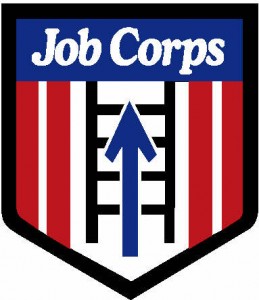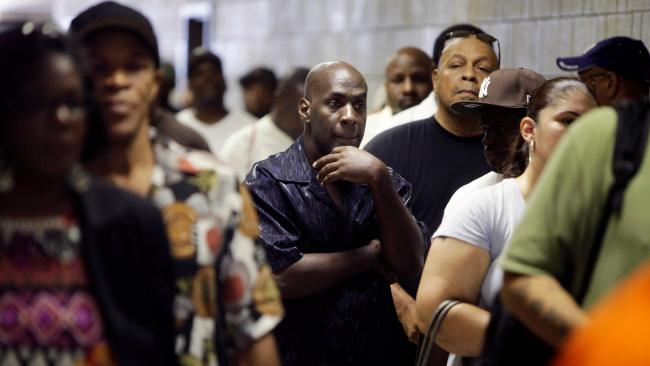(ThyBlackMan.com) Education and employment are two critical issues, especially within the Black community, where African-American students are ranking lower than their counterparts in education and have the highest unemployment rate nationwide. While many are dropping out and others are struggling to go onto college, the Pittsburgh Job Corps program offers low-income youth an alternative to turning to “street life” to survive.
The Job Corps program, which has served young people ages 16-24 for more than 45 years, is a free education and technical career training program administered by the U.S. Department of Labor to low-income, underserved  youth. There are currently 124 Job Corps programs nationwide.
youth. There are currently 124 Job Corps programs nationwide.
“We work very carefully to make sure that (our students are trained) in areas where they can get employment. That is the bottom line for us,” said Molly Taleb, Pittsburgh Job Corps deputy center and career development services director. She added that their job is not completed until students have received training certificates or completed a degree and, most importantly, find a job.
With an 87 percent success rate of students finding employment, going on to four-year colleges or universities, or even enlisting in the military, Job Corps is giving Black youths options. Recently, the Pittsburgh students and staff of Job Corps, along with local officials, held an assembly for National Job Corps Commencement Day, which celebrated student success of graduating from the program. Several students gave testimonies of how making the decision to enroll in Job Corps had changed their lives.
According to Taleb, Job Corps began as a program for inner city boys and has grown to accommodate both males and females and allows participants to receive their diploma or GED; to acquire a vocational trade and receive certification; to get a driver’s license; and the program also sponsors more than 500 students to attend Allegheny County or Butler County Community Colleges.
The Pittsburgh center serves approximately 850 students, with participants being approximately 47 percent African-American, approximately 45 percent White, approximately three percent Hispanic and approximately five percent other ethnicities.
Entrance into the program is based on social economic needs and participants must apply through a recruiter and complete the application process. But with entering the program comes responsibility. Taleb said there is a zero tolerance for drugs, alcohol and fighting. She said these are the same expectations that employers would have.
“Students have to want to be here. It is not a lockdown program,” she said. “If forced then it is not going to work.”
Students in the program receive a stipend, housing and clothing allotments, for things such as uniforms for their vocational courses. The Pittsburgh Job Corps offers studies in several technical careers, but specializes in health care, construction and culinary arts, careers where students are more likely to find employment. And in the Job Corps’ college program, they also sponsor a number of majors where students are most likely to find employment. Taleb said that at Job Corps, they are constantly looking at what students are being trained in and where the jobs are.
Along with training, they also offer their students academic and vocational counselors at each college location, in case students need training or etc.
While many institutions are facing financial cuts due to government budget issues, Taleb’s center is no different. She said that money used for equipment has been frozen, but that budget issues are something they take into account every year. With college and university tuition increasing, Taleb said she has not necessarily seen an increase in enrollment into Job Corps.
Written By Ashley N. Johnson

















Leave a Reply